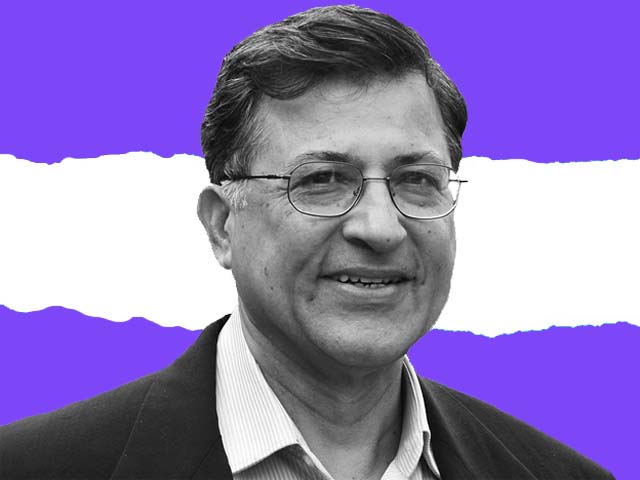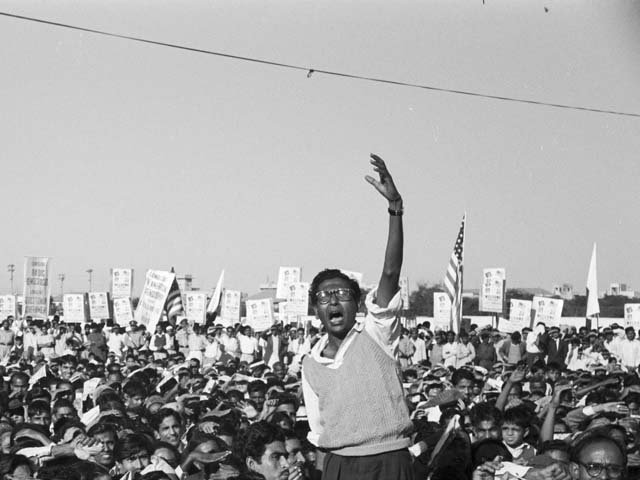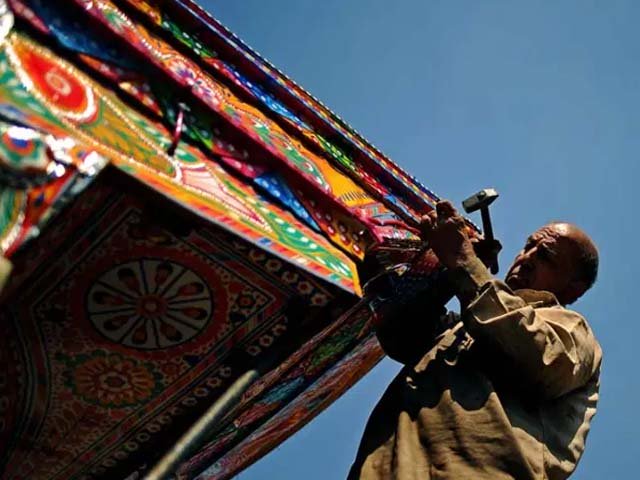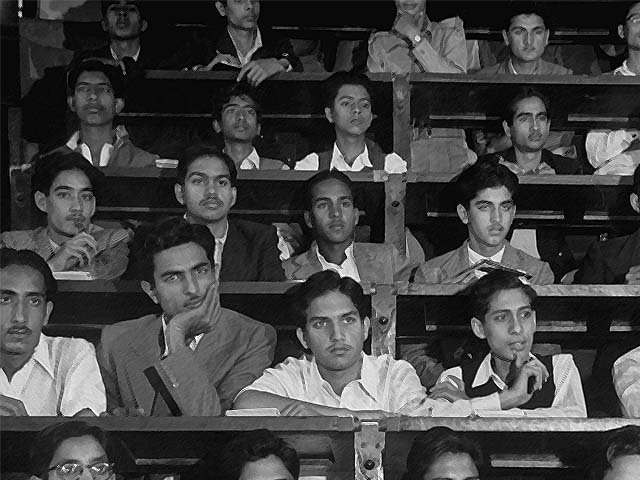
In conversation with Pervez Hoodbhoy – Part 1: Pakistan’s education system
"I do not criticise for the sake of criticism but only because some situation warrants it," says Professor Hoodbhoy
This conversation with Professor Pervez Hoodbhoy is presented as a three part series. Part 1 covers Pakistan’s education system. Part 2 discusses Pakistan’s language conundrum . Part 3 includes a conversation regarding South Asian politics and culture.
~
My correspondence with Professor Pervez Hoodbhoy began a few years ago, and I have presented our email exchanges here so that they can be of service to a wider audience. Professor Hoodbhoy’s sincerity and commitment towards improving Pakistan’s institutions is unquestionable and, whatever one may think of his views on certain topics, there is always a lot to learn from him. Therefore, I hope this correspondence not only enlightens readers about the variety of problems which plague Pakistan but also helps present a way forward for the country.
~
Pakistan’s Education System
Hassan Mirza (HM): The quality of education in public sector Pakistani universities seems pretty low. Yet, some Pakistani universities manage to get internationally ranked. How?
Pervez Hoodbhoy (PH): That’s hardly a mystery. One dozen or more commercial organisations in the United States (US), Europe, and China purport to rank universities by academic quality. From their distant offices, a handful of employees fire off forms hoping that university officials will fill them truthfully. Based on replies received, their computer rates hundreds – perhaps thousands – of universities using some number crunching algorithm that weighs the number of publications, PhD teachers, PhDs produced, etc. These are dubious, highly misleading indicators. Since 2002, churning out meaningless papers is what Pakistani ‘researchers’ excel at because this rakes in the cash or is needed for promotion. Numbers – faked or real – is all that matters. The websites of these businesses say nothing of how their own expenses and salaries are met. Unless confronted, they do not reveal they often have service contracts with some of the universities they claim to evaluate. So it’s a grand racket. Particularly in countries lacking a strong academic tradition or where academic corruption is rarely punished, it is usual for individuals and institutions to manipulate numbers and turn reality on its head.
HM: Would you agree that problems of financial corruption, nepotism, ethnic strife, plagiarism and fake research papers are rife and students barely get any education in their areas of specialisation?
PH: Absolutely! 90 percent of teachers at Pakistan’s public universities don’t know beans about their subjects. What’s worse is that they couldn’t care less. All they want is their paycheck. Corruption is rarely punished, if at all, and mediocrity is everywhere. My department at Quaid-i-Azam University (QAU) is considered the best in the country but something like half of the PhD qualified teachers would flunk – even with preparation – the entry-level test to a good US university. There are almost no discussions between teachers about what is new and exciting in the world of science. Social science departments are better but not by very much. You rarely see teachers reading books other than the one they have to teach from. That’s sad because a university or college is all about books. Students are frustrated that teachers can’t explain even elementary concepts. It’s the same story in other departments and other universities.
HM: There are some good private universities in Pakistan, which are open-minded and it looks like they are doing something positive.
PH: Agreed. Around three to four private universities are indeed better than public universities but they concentrate upon undergraduate teaching and have little noticeable research output. Their student body derives from the elite O/A level system (which rewards problem solving) instead of the public indigenous Matric/FSc system (which rewards memorisation). Students have to pay a lot more at private universities since scholarships are rare. Most high-end private university students see their further studies or future job as lying outside Pakistan.
HM: For Pakistani students many foreign universities have entry level tests, like SAT-I and GRE general which appear to be culturally biased. Even some Pakistani universities require these exams now. Is this unfair?
PH: I think SATs and GRE subject plus general tests are the best filters we have for Pakistan where internal standards have collapsed. No, they are not perfect and there’s a cultural bias in the English sections. But give me something that can work better in our situation. There’s something called the National Testing Service (NTS). It’s a joke – just look at the quality of questions students must answer. I wish we could devise a credible nation-wide university entry level test and administer it properly. At least for now it doesn’t seem possible. There’s too much incompetence at the higher levels and too much corruption.
HM: Why are mathematics and physics important to learn for Pakistani students?
PH: For the same reason as anywhere else. Math requires you to think logically and connect different pieces of knowledge in a particular way. Physics is the application of math to understanding the physical world. Ultimately all that’s in the real world reduces to math and physics. Chemistry is the physics of molecules rather than atoms. Computer science is discrete math implemented on physical systems. Artificial intelligence (AI) and linguistics are by nature thoroughly mathematical. Neuroscience has a long way to go but the theory of neural nets is essentially mathematical. This is what makes things like face and voice recognition possible.
HM: How do you compare Indian science with Pakistani science?
PH: There’s no comparison. Unfortunately, the difference between us and them is huge, particularly in the hard sciences (math and theoretical physics). There’s hardly any Pakistani on the faculty of any high-class US or European university in these subjects. On the other hand, Indians are everywhere. Deans and professors at places like MIT, Harvard, Princeton, Stanford, Cambridge, etc are frequently Indian and India-educated. Sadly, there’s not a single Pakistani that one can point to at the higher echelons of most disciplines. Indian mathematics and theoretical physics are very strong – stronger than China’s – but their technology is weaker.
HM: Chinese academia is rocked by scandals of plagiarism too; it is not an uncommon phenomenon there.
PH: Yes, I am aware of this. Some Chinese journals are in English and you can see a lot of junk there. They also have some pretty bad universities. The same goes for India as well. I’ve actually visited some of the lousier Indian colleges and universities. But the scientific establishment in these two countries is pretty solid. It has been careful to reward only outstanding research – that which is judged outstanding by the outside world as well. China and India have a large mass of true experts capable of exercising solid scientific judgment in every field. Unfortunately Pakistan’s scientific establishment is corrupted from top to down and so every form of charlatan and crook thrives. Remember the water car? Even our nationally celebrated ‘scientists’ are such appalling ignoramuses that they publically applauded something that was a complete scam. Our national science academies are a complete disgrace.
HM: Why are Pakistani scientists weaker in theory?
PH: Good theory requires a lot of study and students who are both talented and hard working. But in Pakistan only failed students opt for the sciences. The more capable ones choose business, medicine, or engineering. It’s completely the opposite in advanced countries where the hard sciences attract the very best and the brightest. Sometimes bright kids here want to follow their interests but have to surrender to their parents who force them into a rat race for lucrative careers. Our cultural priority is to earn, not learn.
HM: Maybe Pakistani students are better off with technical subjects (engineering, IT, business, economics) which are more commercial rather than the scientific ones (mathematics and natural sciences)?
PH: Agreed. A modern society needs a variety of skills. We need good engineers and technicians but even these professions need clear, critical thinking. Having various tiers of universities and a better structure of higher education is certainly needed.
HM: You have said many times that the Indian education system is comparatively better than the Pakistani system. I find this hard to believe as they have extreme income inequality, caste system, incredible amounts of superstitions and tonnes of social problems which even many poor African countries do not have.
PH: India is uncaring about its poor, hill tribes, Kashmiris, and now Muslims are going to have a still rougher time during Narendra Modi’s four remaining years. But I stand firm on my observations of Indian education during my numerous trips to India. Over the last 20 years I must have spoken there at around 20-30 different universities (plus schools and colleges), and interacted with teachers and students. Parts of India are really bad in terms of living conditions but we’re talking here of education only. The general quality is so much better that the difference hits you in the face. Students are so much more alive and inquisitive. Another measure is to glance at university entrance examinations in places like the Indian Institutes of Technology (IIT). I’ll bet most PhDs teaching in Pakistani universities wouldn’t succeed in getting admission there.
HM: What were your impressions of Muslim education in India?
PH: Muslims are generally exposed to a better quality of education in India relative to Pakistan. But there is a kind of ghettoisation there which is quite frightening. My worst experience was at Maulana Abul Kalam Azad Urdu University in Hyderabad Deccan in 2015. Even the International Islamic University in Islamabad has fewer burqas and beards.
HM: You have given talks at many Pakistani universities. What are your impressions there?
PH: Mixed. In places there are smart students who thirst for good education and ideas but couldn’t find the right environment there. But except for at two or three universities, academic freedom is greatly restricted. So, for example, I’m banned from entering at least a dozen universities. These include University of Engineering and Technology (UET) (Lahore), UET (Taxila), University of Gujrat, Punjab University, and others. Their students invite me from time to time to talk on some science subject (or perhaps something else) but then have had to withdraw their invitation once the administration finds out. In fact, even at QAU – where I’ve taught for 45 years – many departments other than the physics department don’t allow me there. It’s amusing that UET Lahore doesn’t have a problem with Hafiz Saeed (who was a teacher there) but thinks that I’m the dangerous one.
HM: Maybe the undemocratic forces in the country have something to do with these bans? Probably toning down your level of criticism can help you to escape censorship in Pakistan.
PH: I do not criticise for the sake of criticism but only because some situation warrants it. I know that some things I’ve said haven’t been very popular but I’m not running for some party ticket and nor am I promoting my own political party. Of course, I am a fairly careful person and do not take anymore risks than are necessary.
HM: You were fighting against the land grabbing mafia at your university, QAU. What happened with that issue?
PH: It’s a sad story but I hope it’s not over. In 1996, after a battle that lasted two years, we stopped the clever theft of QAU land engineered by Benazir Bhutto. She wanted to oblige her Pakistan Peoples Party (PPP) members of national assembly (MNAs), and bribed QAU teachers so they wouldn’t complain. It was a bloody fight but we won the public interest litigation. I thought we had saved QAU’s land for future generations but there’s been a more recent lab grab by Nayyar Bukhari. He’s a PPP stalwart who, while he was acting president of Pakistan, used his authority to consolidate his theft and build his personal palace on campus. He even had the gall to build a road going through the campus and calling it Bukhari Road. The present QAU administration, as well as some previous VCs, made only the feeblest of squeaks about this scam. In fact two earlier vice chancellors were complicit in the land grab as was at least one registrar. Imran Khan ordered a land recovery soon after becoming prime minister and the bulldozers swung into action. But a few hours later the operation stalled. The palace remains intact. Bukhari gathered enough influential ones around him, including Pakistan Tehreek-e-Insaf (PTI) MNAs, to stop the clearing operation. It’s a crying shame that a government that came into power by screaming against corruption now appears powerless to fix things under its very nose.




COMMENTS
Comments are moderated and generally will be posted if they are on-topic and not abusive.
For more information, please see our Comments FAQ